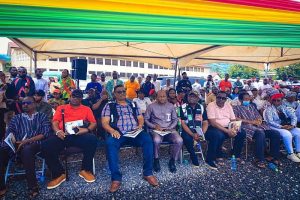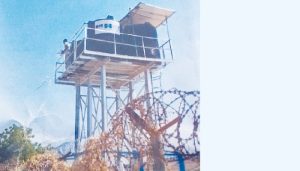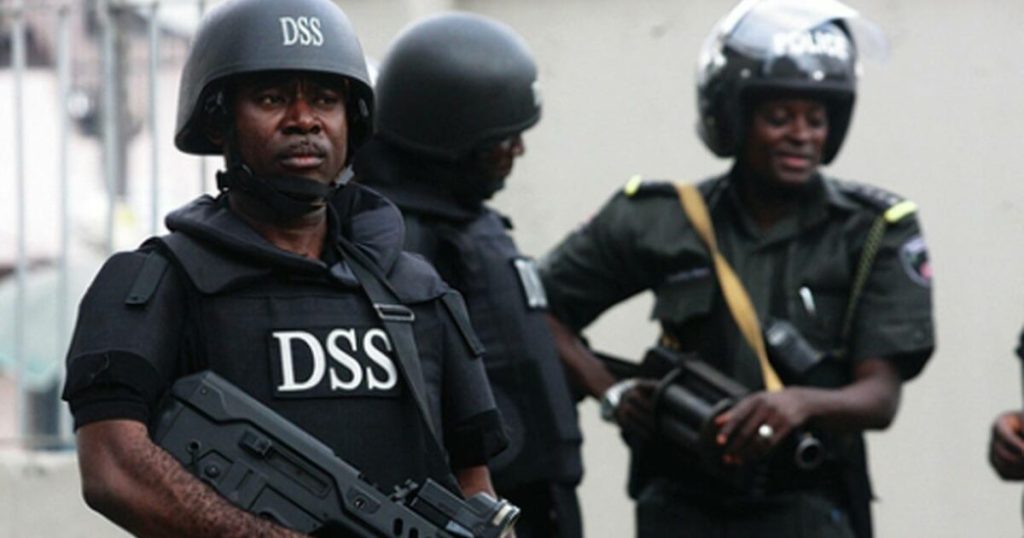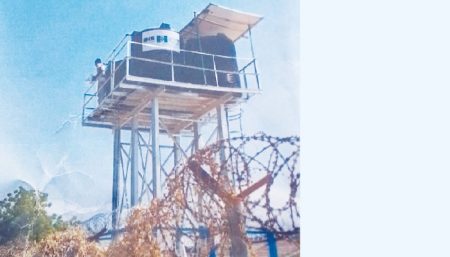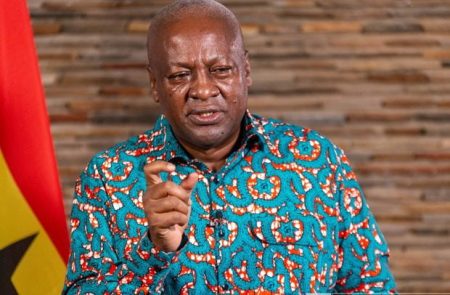The Department of State Services (DSS) has clarified its stance on the proposed shadow government initiated by Professor Pat Utomi, the 2007 presidential candidate of the African Democratic Congress (ADC). The DSS, through its lead counsel, Akinlolu Kehinde (SAN), has emphatically stated that it has no intention of arresting Utomi or any other individual associated with the shadow government. Instead, the DSS has chosen to pursue legal channels to address the matter, demonstrating its commitment to the rule of law and constitutional democracy. The agency filed an application for an interlocutory injunction at the Federal High Court in Abuja to restrain Utomi from making further public statements or participating in rallies related to the pending lawsuit against him. This legal approach underscores the DSS’s confidence in the judicial system to interpret the constitutionality of the proposed shadow government.
Kehinde emphasized that the DSS, under its current leadership, operates as a civilized organization with utmost respect for the rule of law. He highlighted the agency’s belief in seeking judicial redress whenever it perceives any infringement on its statutory duties or the rights of its personnel. The DSS lawyer cited the case instituted against the Socio-Economic Rights and Accountability Project (SERAP) by some of its personnel as an example of the agency’s commitment to legal processes. By resorting to the courts, the DSS aims to allow the judiciary to determine the legality of Utomi’s actions and pronouncements concerning the shadow government.
The DSS believes that engaging with the judicial system is the most appropriate course of action in this matter. Kehinde urged the media, as the fourth estate of the realm, to closely monitor the ongoing legal proceedings. He explained that the DSS filed the civil suit against Utomi in line with its mandate to maintain internal peace and prevent any form of insurrection or treasonable felony against the democratically elected government. The application for an interlocutory injunction seeks to prevent Utomi from making potentially inflammatory statements or engaging in activities that could incite chaos while the substantive suit is pending.
The core issue before the court, according to Kehinde, is the interpretation of the Constitution regarding the permissibility of establishing any form of government outside the existing constitutional framework, regardless of the name given to such a government. The DSS seeks a clear legal determination on whether the concept of a shadow government aligns with the principles of Nigerian constitutional democracy. The interlocutory injunction application aims to maintain the status quo and prevent any actions that could escalate tensions or disrupt public order while awaiting the court’s decision on the substantive matter.
Specifically, the interlocutory injunction seeks to restrain Utomi, his associates, and anyone acting on his behalf from organizing or participating in any public activities promoting the shadow government. This includes road shows, rallies, public lectures, newspaper publications, television programs, and any other form of public communication intended to advance the objectives of the shadow government. The DSS argues that such activities, if unchecked, could pose a serious threat to public order, safety, and national unity. This application stems from intelligence reports indicating Utomi’s plans to hold rallies and roadshows under the guise of freedom of speech and association, actions the DSS believes are intended to incite public discontent.
The genesis of this legal battle lies in Utomi’s announcement on May 5th of the formation of a shadow government under the umbrella of the Big Tent Coalition. The stated aim of this shadow government is to provide credible opposition to President Bola Tinubu’s administration. The DSS filed its lawsuit against Utomi at the Federal High Court in Abuja on May 14th, alleging an attempt to illegally usurp the President’s executive powers. This legal action underscores the DSS’s commitment to upholding the constitutional order and safeguarding the integrity of the democratically elected government. The case now awaits the court’s decision on the interlocutory injunction and subsequently, the determination of the legality of the proposed shadow government.


